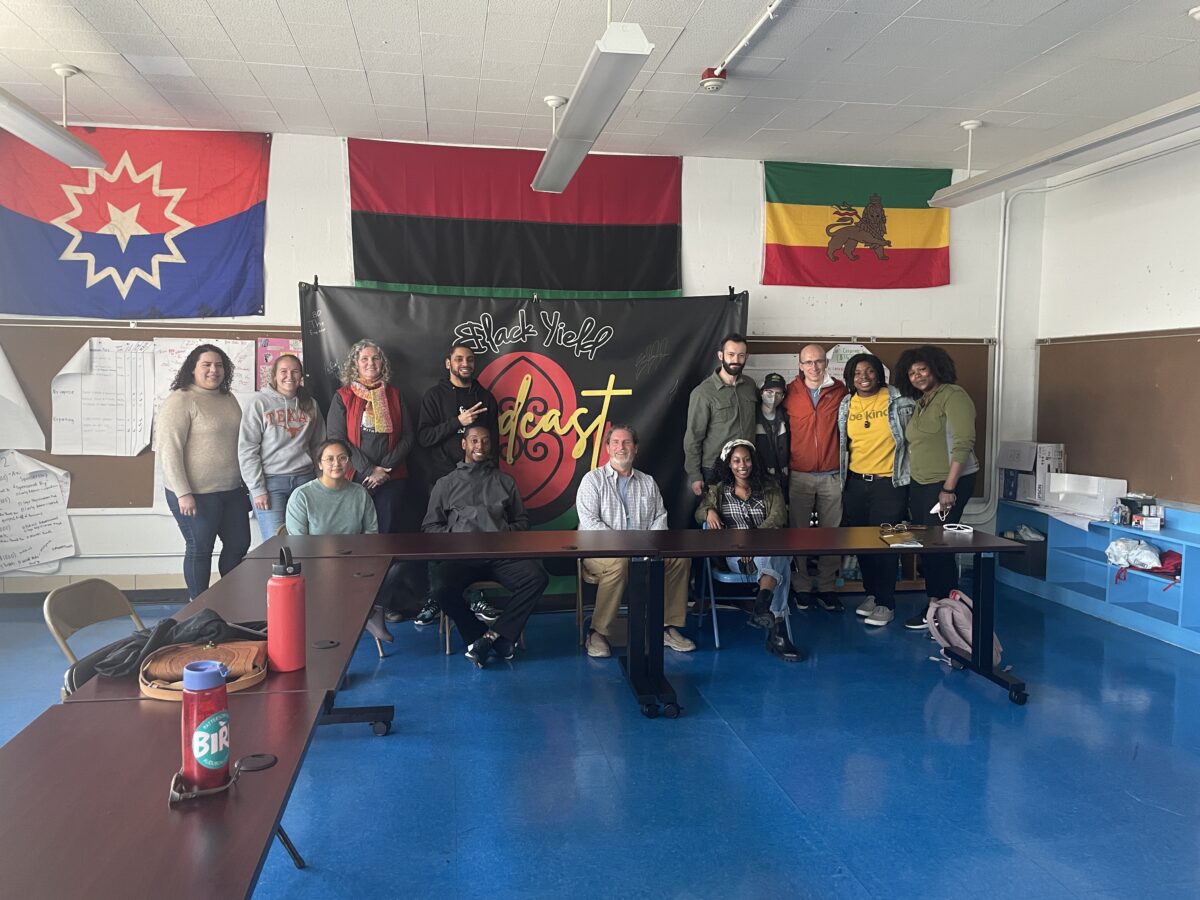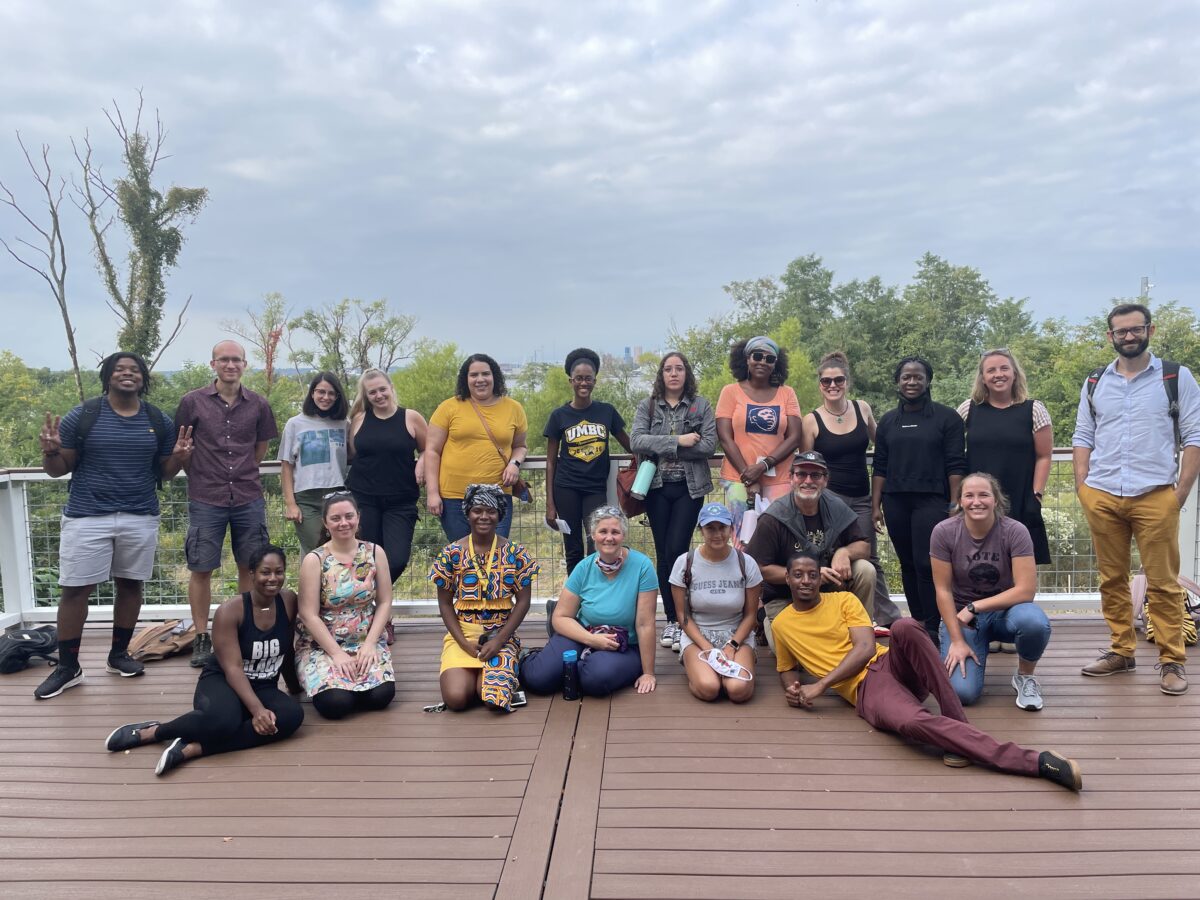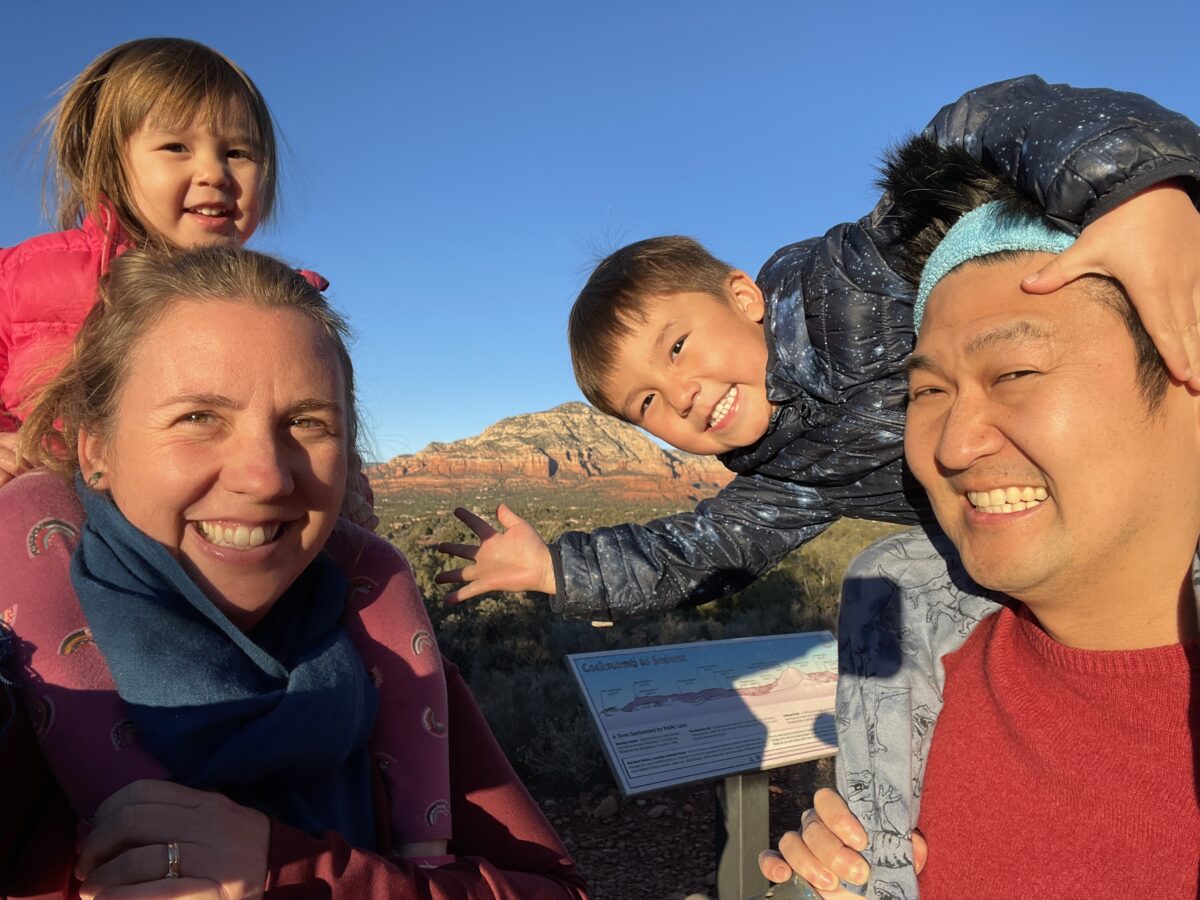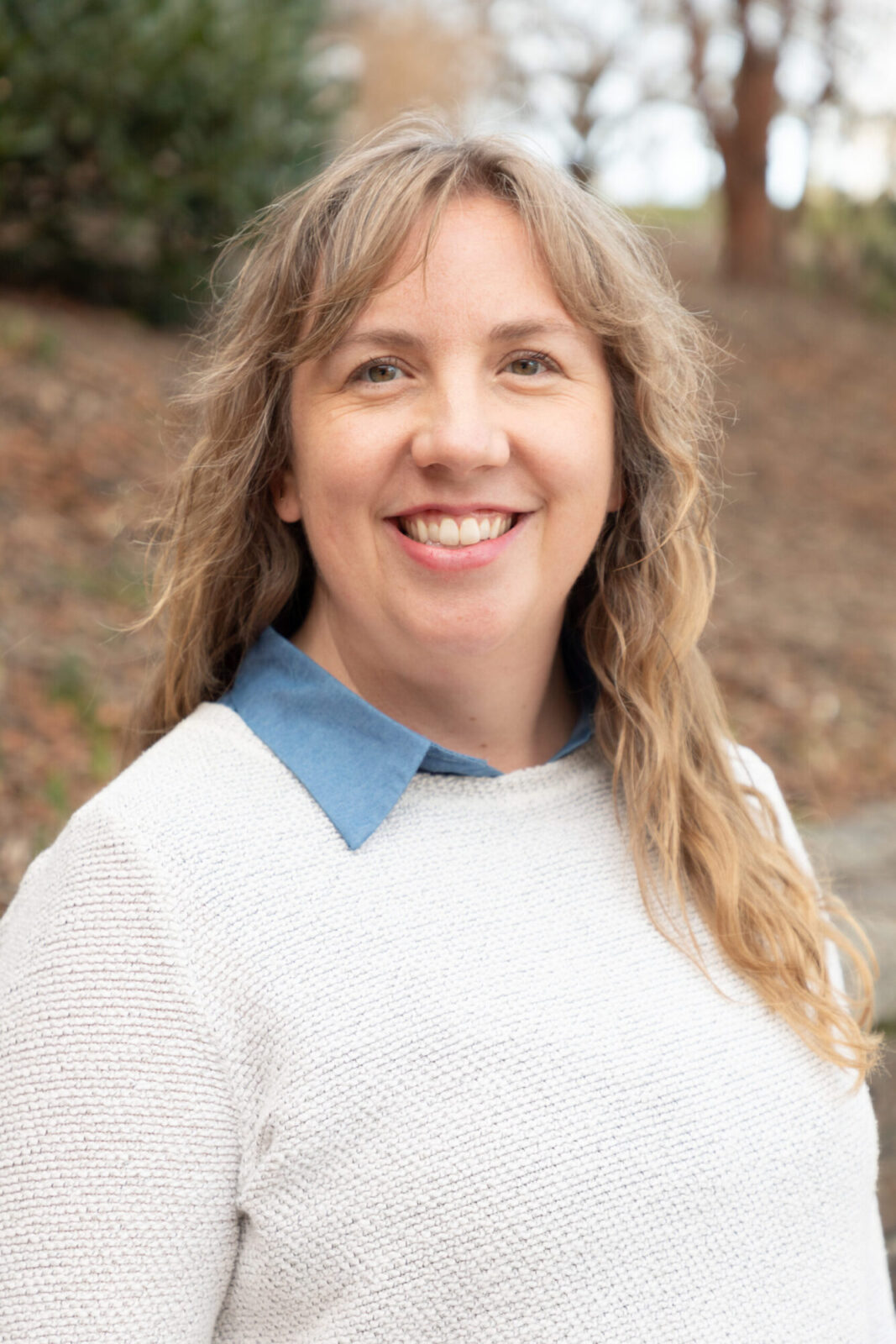For most people, obtaining a Ph.D. is a means to an end—authorship, professorship, a career destination. For Charlotte Keniston, it’s about the journey as a lifelong learner. After joining UMBC as a Peaceworker Fellow, Keniston received her M.F.A. in imaging and digital media in 2014. She continued her work in Baltimore and eventually rejoined the Shriver Center Peaceworker Program as a staff member with the intention to work towards her Ph.D. in language, literacy, and culture (LLC). And she did just that.
Q: What was your journey like to get here?
A: I came to Baltimore in 2011 as a Peaceworker Fellow and got my master’s of fine art in imaging and digital art, now called the intermedia and digital arts program. As a Peaceworker Fellow, I was involved in conversations about how career paths could be used for kind of a broader meaning or bigger impact. I did work in the Baltimore neighborhood Pigtown around food justice and food access when I was a master’s student, and I left my academic program kind of wanting more of those conversations. When I applied to my position in the Shriver Center in 2017, I saw that as a way to continue that meaningful work in Baltimore and give me the chance to pursue a Ph.D. in the LLC program.

Q: What did the trajectory of the work within your program look like and how did it intersect with your current position?
A: As I went through the LLC program, I started to hone my interest in how universities can work with their surrounding communities to answer pressing questions posed by those communities. My role at the Shriver Center really informed that line of questioning because in my role with the Peaceworker Program, I’m placing graduate students into community-engaged partnerships, and so I’m thinking all the time about how do we steward those partnerships, how do we be good neighbors of our campus community and then our broader communities, and how are we ethical in the work that we do in communities?
Q: Did you find that your professional approach to your work changed given that you were also a student yourself?
A: I found lots of ways to connect my job with the research and work that I was doing academically. I worked with an organization called Black Yield Institute in Cherry Hill to do the practical version of my dissertation research, and I brought all the Peaceworker Fellows there one day to work on a library project. It was like I was showing up there as my whole person with my students in tow and with my kids in tow. And then my students, the Fellows that I work with, got a chance to really see the work that I was doing. I actually feel like that made the project a lot stronger.
“I'm placing graduate students into community-engaged partnerships, and so I'm thinking all the time about how do we steward those partnerships, how do we be good neighbors of our campus community and then our broader communities, and how are we ethical in the work that we do in communities?
Q: Do you think having this unique perspective strengthened your ability to bond with and empathize with your students?
A: It definitely did, and I think it’s nice to just be able to commiserate. When I see the panic in their eyes about the end of the semester, I feel that—so I feel like it can be extra empathetic. I make sure the snacks for our practicum seminar are extra good toward the end of the semester (I know we both need it). We do writing groups together, and they honestly are some of the best voices to say, “You need to take a break—you’re doing too much.” I feel like I have their support as much as they have my support.

Q: Were there individuals on campus specifically who you feel inspired or supported you in ways?
A: Joby Taylor is my supervisor and he graduated from the LLC program too, so I felt like not only was he kind of walking in front of me, he was also dismantling barriers for me—looking at my calendar and suggesting, “You have a free day in two weeks. You should take that to write.” Or very practically making things work for me and just serving as a really good sounding board.
Q: Do you feel like you were set up for success having mentors that went through the program themselves?
A: I think I had people who I was kind of holding onto their coattails as they got me to the finish. Ciara Chiristian, one of the directors in i3b, was that person who was a step or two ahead of me in the program. She got her dissertation two years ahead of me, but we were in the same cohort and she was the person that when I was really stuck with my thinking, I’d come to her for help. And now I have people who are just a step or two behind me, who I’m encouraging and helping them figure it all out. It really feels like LLC fosters that kind of connection between students that we really help each other get to the finish.

Q: What advice would you give to others considering this program?
A: I think a lot of people say, “Oh, don’t do a Ph.D. unless you want to be a professor.” But I don’t think that’s a necessary requirement. I did not go into this thinking that I wanted to be a professor. I already had my terminal degree. I had the chops to be a professor if I needed to, and I love my staff job. But I still had all these intellectual curiosities that I wanted to explore, and this was the way to do it.

